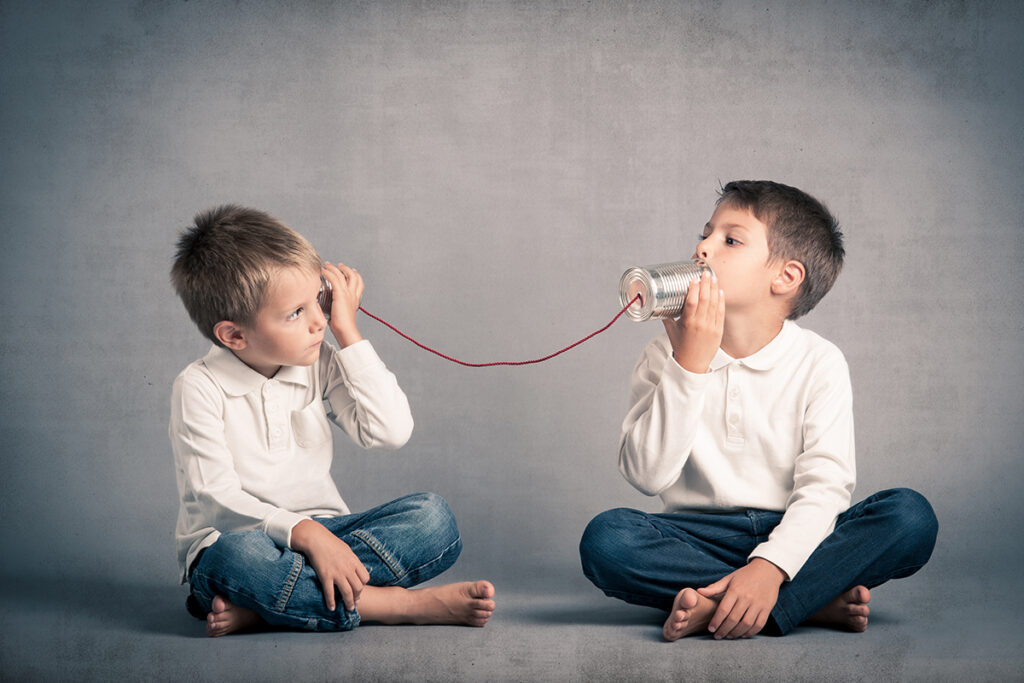Listen Up! You May Just Learn Something

Ever been in a conversation where you felt like the person you were talking to wasn’t listening to a word you said because they were too busy trying to convince you of their opinion?
Yep, me too. It’s a common phenomenon. So much so that there’s likely been times that you’ve left others feeling that way. I’m sure I have.
The reality is that we’re wired to think our view of the world (along with the problems and people in it) is the right one. If only everyone would see (think and act) as you do all would be well, right?! But consider this:
While your perspective may seem completely logical to you, other people think the same about theirs!![]()
The most successful people I’ve ever met have all been great listeners. People who asked lots of questions and don’t assume they have all the answers. People like Richard Branson who carries a notebook with him everywhere he goes and Bill Marriott who recently shared with me (below) why lousy listeners make even lousier leaders.
If you’re currently dealing with tension in a relationship, I have a suggestion for you. Find some time to sit down and spend at least 15 minutes trying to understand their perspective more fully. Here are six ways you can listen better:
- Listen to understand, not be understood. In other words, put aside your agenda and concerns and commit yourself only to seeing through their eyes and feeling through their heart. Think beyond what they are saying to why they’re saying it
- Create safety. People often struggle to share what’s on their mind and heart, so do what you can to make them feel safe and at ease. You could help them to open up by saying “I’ve got a feeling that somethings been on your mind and I’d love to know what it is if you’d be open to talking about it. What’s been troubling you?”
- Speak sparingly. Since you’re only intention is to understand you should never push back on anything they say or attempt to ‘enlighten’ them as to the error of their ways. Rather the only time you should speak is to:
- acknowledge their experience (eg. “I get that must have been really tough”),
- clarify you’re on the same page (e.g. “So let me just check I’ve got this right, you’re saying that…. ” and
- ask questions to draw out more information (e.g. “So what happened before that?” or “Why did they do that?”)
- Listen for what’s left unsaid. As they share, listen for what they are not willing or able to say out loud. What are the “unspoken concerns” (fears, motivations, wants and needs) they are speaking from. For instance, are they anxious about the future and how they’ll handle it? Are they afraid of being left behind? Are they trying to protect their job or ego? Are they too afraid to ask? Are they feeling unvalued? Are they scared of rejection or being humiliated in public? Are they craving affirmation or encouragement?
- Lean in to your intuition. The deepest level of listening goes beyond relying on what you hear or see. It requires tuning in to your intuition and letting it point you toward whatever you really need to get present to in the other person.
- Allow the silence. It’s in the silence of a conversation that it can get to the heart of the issue that really needs to be addressed, yet too often we fill the silence to avoid the discomfort it can create. Don’t. Let the silence do its work because the more sensitive an issue, the greater space people need to think about the issues, work through their own conflicted feelings and find a way to express what they have to say.
To view my Facebook Live video on why listening better can impact your relationships at work and home, just click here.
Of course, listening to someone better than you have before may not change your opinion. However it may give you a whole new appreciation for why others see, think, feel and act quite differently to you. By genuinely trying to see through their eyes and understand how they feel, you place a big deposit into the ‘relationship account’ which can open the door to building bridges, growing collaboration and finding a ‘middle ground’ that you could could otherwise.
As I wrote in Brave, listening is the singular most valuable yet underutilized tool of communication. Ironically enough, the word ‘LISTEN’ has the same letters as the word ‘SILENT’. (Bet you didn’t know that huh?)
Winston Churchill once said, ‘Courage is what it takes to stand up and speak. Courage is also what it takes to sit down and listen’. Given all the turmoil going on in our world right now, there’s never been a better time to start being more deliberate in trying to understand those who see the world differently to you.![]()
Your ears will never get you into trouble and, who knows, you may just learn something that changes everything.


